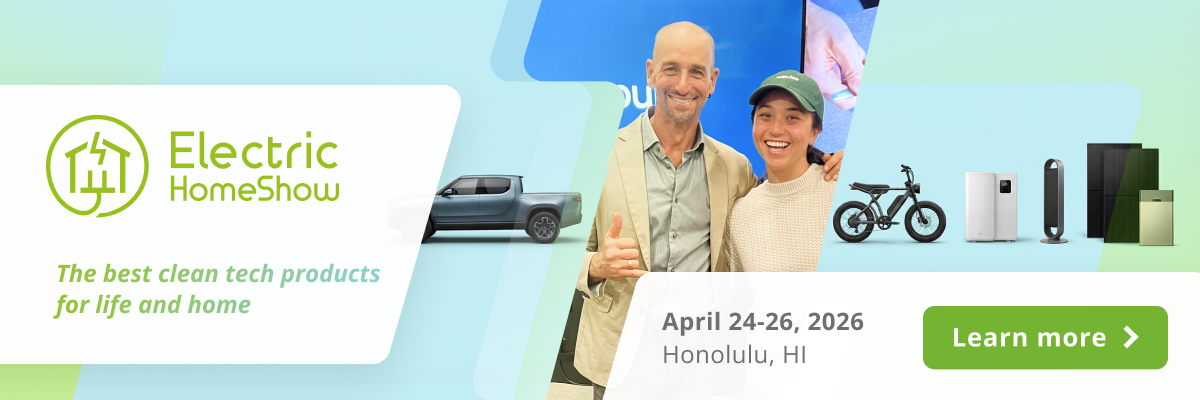NADA: Car Dealers Are Going “All-In” On Electric Cars
Support CleanTechnica's work through a Substack subscription or on Stripe.
Or support our Kickstarter campaign!

Electric cars aren’t coming, they’re already here. That was the message sent by both the Biden administration’s massive EV charging bill and, more importantly, the all-new, all electric Ford F-150 Lightning pickup when it made its debut earlier this year, and America’s franchise car dealers have received the message loud and clear, according to National Auto Dealers’ Association (NADA) President Mike Stanton.
“When Ford unveiled the F-150 Lightning, it did far more than just announce the newest iteration of the most popular and best-selling vehicle in America for the last 40 years,” explains Stanton. “[The Lightning] ushered in a new—and long overdue—era of battery-electric vehicles built not to fill niches within the American car market, but for the bulk of it.”
Franchise Dealers Are Here to Stay

My earlier article about consultants trying to convince utility companies into trying to sell cars touched on this fact, but it’s worth repeating: franchise dealers are not the enemy of mainstream EV adoption. In my opinion, they’re the key to it, and Stanton seems to agree with me. “One of the great mistakes we make in assessing our progress on converting America’s fleet to electric is assuming that today’s EV buyers will look like the EV buyers of tomorrow,” he says, accurately calling out the Gambler’s Fallacy at play when people assert that, because a brand like Tesla can successfully sell direct to consumers, a brand like Ford can, too. “What Tesla has proven is that you can sell Teslas very successfully in America (emphasis his) to a certain, and pretty small, subset of our population. To date, American EV [buyer demographics] are vastly different from ICE-vehicle buyers … EV buyers are much wealthier, much better informed about EVs.”
I get what he’s saying — as EVs and hybrids change from being seen as status symbols or virtue signals (I know, I know, I hate that phrase, too) to something that looks and feels more like what people are already buying, the average EV buying demographic will start to resemble the average demographic as it is. That basically means that trying to sell a compact, efficient electric hatchback like the Nissan LEAF will work about as well as trying to sell any other compact, efficient hatchback in the US, and that selling a capable, durable electric truck will go about as well as selling any other capable, durable electric truck. The fuel that powers the vehicle won’t be what makes a vehicle like the Mustang Mach-e GT special, its 0-60 performance, and practical ability to haul stuff home from the big box store will be.
EVs will start being sold as products, not as ideologies, and that is a monumental shift from where we’ve been in the past. And, you know who is really, really good at selling cars as products? Car dealers.
“We hear a lot of people argue that dealers are an impediment to EV sales in the US,” says Stanton. “And moving forward, this type of thinking won’t just be wrong, it will be dangerous — if our goal is, as it should be, to sell a greater number of EVs to a broader segment of the American market … This is a critical juncture in our march toward a cleaner future.”
The Dealers That Adapt Early Will Win

It sort of goes without saying, but the dealers who adapt soonest and adapt best to the unique challenges of selling electric cars are going to be the big winners here, but that goes beyond a salesperson’s ability to talk about the benefits of home charging and wheel-to-well emissions comparisons with ICEs. Dealers are going to have to become adept at answering questions about EV charging and how electric cars fit into consumers’ daily lives, and it’s going to take a lot to transition the nearly 17 million yearly new car buyers — and 39 million used car buyers! — from ICE to EV in the coming decade.
Luckily, it seems like the NADA understands that, and its member dealers seem to get it, as well.
“It’s going to take a network of tens of thousands of retail and service points located in just about every corner of the country, not just a website. It’s going to take hundreds of thousands of knowledgeable sales staff, not just a 1-800 number. And it’s going to take hundreds of thousands of highly-trained technicians capable of providing professional service on the spot, not just mobile repair trucks,” says Stanton. “It’s going to take dealers. Fortunately, we’re already here, and we are raring to go.”
Source | Images: National Auto Dealers’ Association.
Support CleanTechnica via Kickstarter

Sign up for CleanTechnica's Weekly Substack for Zach and Scott's in-depth analyses and high level summaries, sign up for our daily newsletter, and follow us on Google News!
Have a tip for CleanTechnica? Want to advertise? Want to suggest a guest for our CleanTech Talk podcast? Contact us here.
Sign up for our daily newsletter for 15 new cleantech stories a day. Or sign up for our weekly one on top stories of the week if daily is too frequent.
CleanTechnica uses affiliate links. See our policy here.
CleanTechnica's Comment Policy
